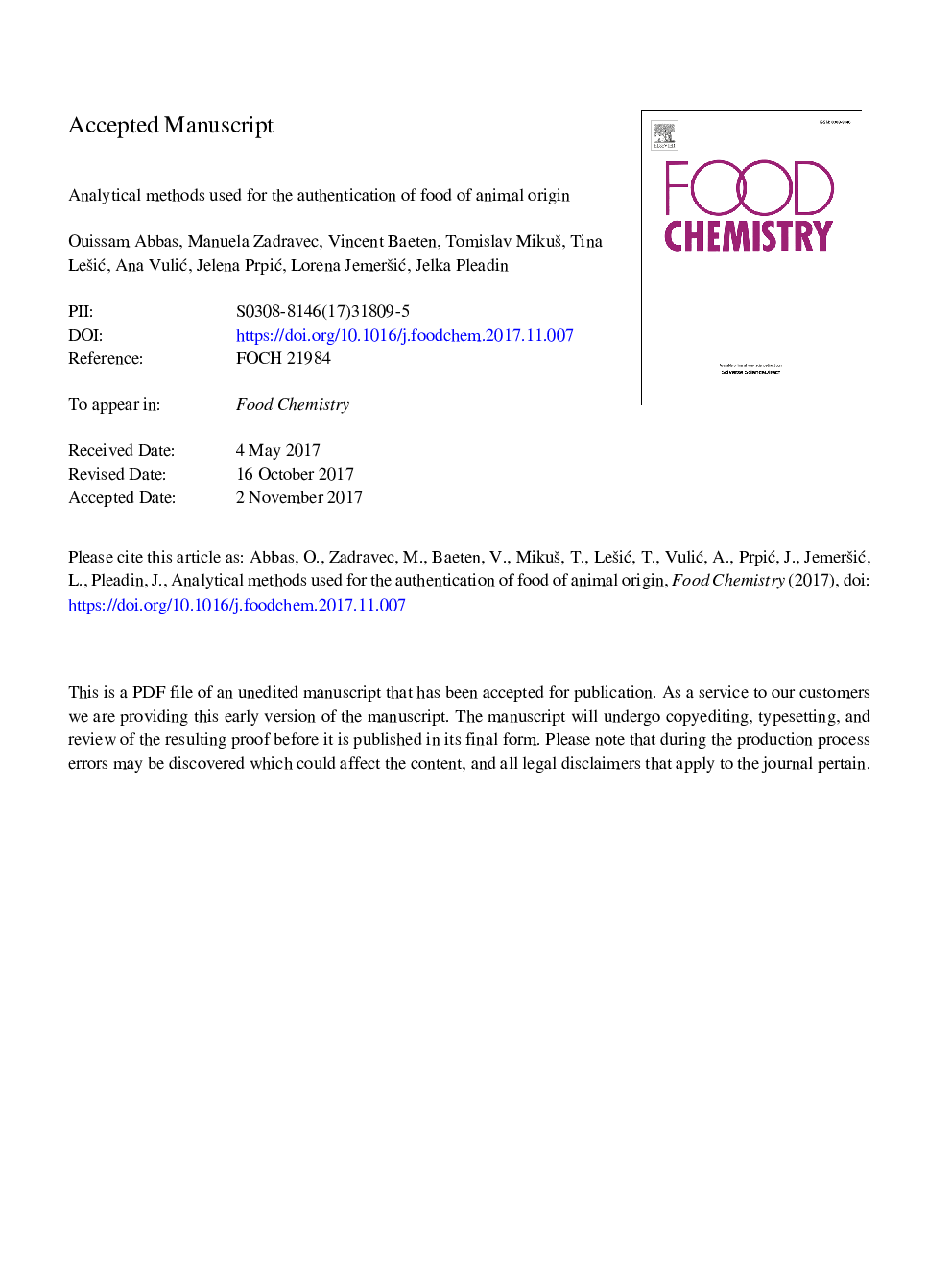| Article ID | Journal | Published Year | Pages | File Type |
|---|---|---|---|---|
| 7586053 | Food Chemistry | 2018 | 43 Pages |
Abstract
Since adulteration can have serious consequences on human health, it affects market growth by destroying consumer confidence. Therefore, authentication of food is important for food processors, retailers and consumers, but also for regulatory authorities. However, a complex nature of food and an increase in types of adulterants make their detection difficult, so that food authentication often poses a challenge. This review focuses on analytical approaches to authentication of food of animal origin, with an emphasis put on determination of specific ingredients, geographical origin and adulteration by virtue of substitution. This review highlights a current overview of the application of target approaches in cases when the compound of interest is known and non-target approaches for screening issues. Papers cited herein mainly concern milk, cheese, meat and honey. Moreover, advantages, disadvantages as well as challenges regarding the use of both approaches in official food control but also in food industry are investigated.
Related Topics
Physical Sciences and Engineering
Chemistry
Analytical Chemistry
Authors
Ouissam Abbas, Manuela Zadravec, Vincent Baeten, Tomislav MikuÅ¡, Tina LeÅ¡iÄ, Ana VuliÄ, Jelena PrpiÄ, Lorena JemerÅ¡iÄ, Jelka Pleadin,
